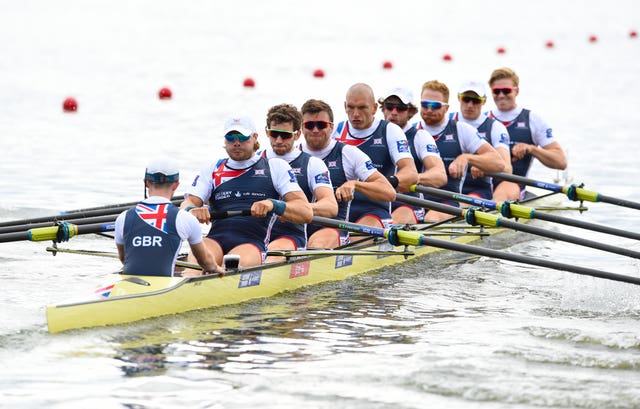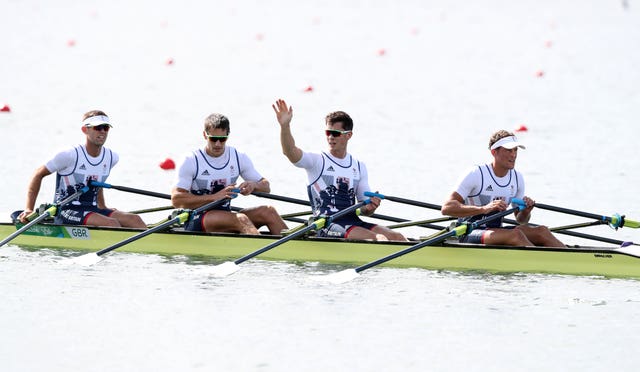Mat Tarrant will be racing at his second Olympic Games in Tokyo but his name will not grace any record books, nor has he any intention of inking the traditional rings tattoo on his torso.
Tarrant, a 30-year-old double rowing world champion, will again fulfil the shadowy role of reserve on his sport's biggest stage, destined – barring a dramatic twist of fate – only for the pre-event 'spares' race at the Sea Forest Waterway in Tokyo Bay.
Not included in the final tally of 376 Team GB athletes named on Thursday were 22 reserves, most of whom will travel to the Games, in rowing, athletics, cycling, hockey and equestrian. Although they are afforded a full kitting-out, they must wear different accreditations and are restricted from accessing all but their own events.

The International Olympic Committee does not recognise athletes as Olympians unless they are named on the official team-sheet for a Games event.
So whilst an entirely unused substitute in football or hockey officially makes the cut, an athlete such as snowboarder Katie Ormerod, who crashed on her practice run immediately prior to her event in Pyeongchang in 2018, does not.
Tarrant admits being a little bitter about his own lack of official recognition, particularly as it is a role he will have fulfilled twice, but it is one he takes seriously with good reason.
Five years ago in Rio, after Graeme Thomas was struck down with 'flu, Jack Beaumont stepped into the quadruple sculls at late notice, and ultimately finished fifth.
Tarrant told the PA news agency: "I think of myself as an Olympian, but on paper I'm not.
"It can be a bit of a hardship being a spare. You don't get the same accreditation and you don't get the little lion tag that you can hang off your kit that says you're an Olympian.
"It's a little bitter to take – I think I've done enough to deserve that title."
Tarrant has won two world titles – in 2014 as part of the men's eight, and the following year in the coxed pair.
But he does not consider it an indignity that instead of performing in front of millions of TV viewers at the Games itself, he must muster enthusiasm for the pre-event pairs race, which is ostensibly arranged to test equipment.
"Ultimately you commit all that pain and effort for the chance to go to an Olympics, so for this to happen to me twice is a bit hard to swallow," added Tarrant.

"But once you are given that role you've got to rise above it. It's the least fun role, but it's probably one of the most important one.
"You need to be fully prepared to jump into any seat in any boat at a moment's notice and get that crew to the start-line."
British reserves will be bolstered by other travelling athletes, such as five members of the boxing team who will head out to act as sparring partners to their selected team-mates.
They, however, must stay separately from the Athletes' Village and will fly home before the competition starts.
"The reserves are the unsung heroes in many respects," said a BOA spokesman. "They support their team-mates in the toughest of circumstances and have to be ready at any point to take part and perform at the highest level.
"It's really important to us that they know they are still an important part of the team and we value their contribution greatly."
Tarrant plans to take a break after Tokyo and probably retire from a sport which has consumed him for the best part of 15 years.
He admits the prospect of committing to three more years of an Olympic cycle only to find himself in a possibly unprecedented third straight spare role is almost too much to bear.
For the most part, he will seek to milk all he can from the opportunity, which means flying out and staying in the Athletes' Village with the rest of the team.
But despite his conviction that he deserves it, there is one recent Olympic tradition that he still considers a stroke too far.
"I don't think I'll be getting the hoop tattoo," Tarrant admitted. "Even though I do class myself as an Olympian, I don't know how it would go down if I started walking around with those things on my body."












